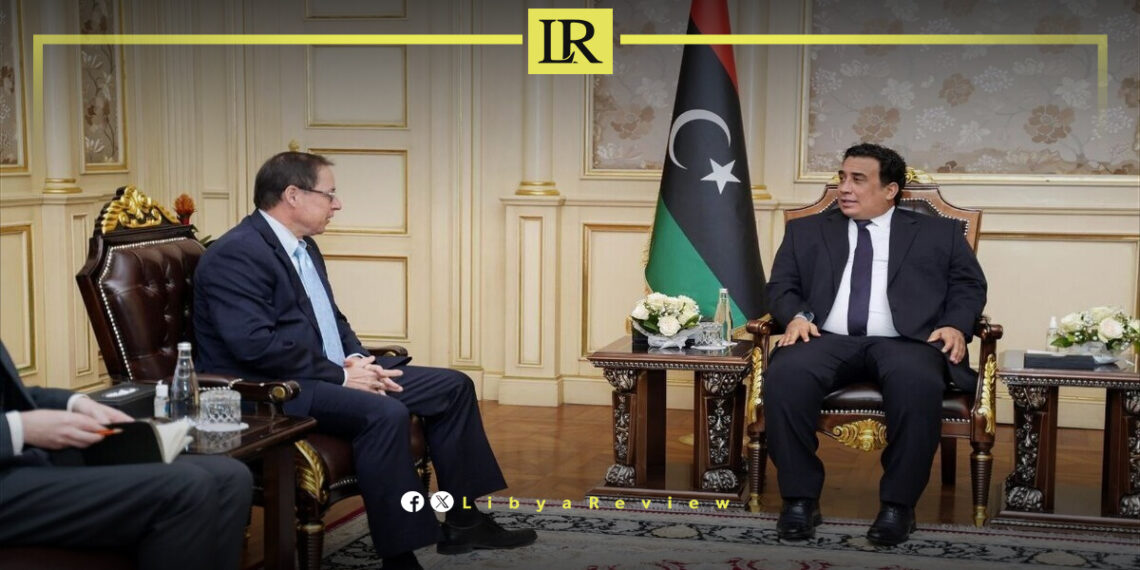On Sunday, Libya’s Presidential Council Chairman, Mohamed Al-Mnifi, met with Russia’s Ambassador to Libya, Aydar Aganin, to discuss Libya’s ongoing political challenges and strengthening diplomatic ties between the two nations.
According to a statement from the Russian diplomatic mission, the meeting covered many issues, including Libya’s political situation, bilateral cooperation, and Russia’s role in supporting Libya’s stability.
Russia reaffirmed its commitment to assisting Libya in overcoming its internal divisions and achieving national unity through political consensus. Moscow emphasized the importance of stability in Libya for broader regional security and reiterated its readiness to support diplomatic and economic collaboration.
Al-Mnifi expressed his appreciation for Russia’s stance in international forums and underscored his desire to enhance political, economic, and security cooperation. Both sides agreed on the need for continued dialogue and deeper collaboration to advance shared interests.
A key topic of discussion was the case of Hannibal Gaddafi, who has been detained in Lebanon for years without trial. Both parties reviewed the latest developments regarding his situation, but no further details were disclosed.
As Libya continues to struggle with political uncertainty, stalled elections, and institutional fragmentation, the meeting highlighted Russia’s growing involvement in Libya’s diplomatic and security affairs.
Since the overthrow of Muammar Gaddafi in 2011, Libya has struggled with political fragmentation, armed conflicts, and a lack of unified governance. The country is effectively divided between two rival administrations—the Government of National Unity (GNU) in Tripoli, led by Abdul Hamid Dbaiba, and the House of Representatives (HoR) in the east.
Efforts to hold national elections—originally planned for December 2021—have repeatedly stalled due to disputes over election laws, candidate eligibility, and control over Libya’s vast oil revenues. The United Nations and international powers, including Russia, have attempted to mediate negotiations between Libya’s rival factions, but political instability and foreign interventions have prolonged the crisis.


